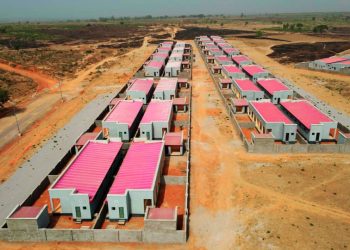In the wake of recent devastating floods that have severely impacted communities across Nigeria, the National Emergency Management Agency (NEMA) has intensified its efforts to mitigate the effects and provide essential relief to those affected. The scale of the disaster is significant, with 27 states affected, over 227,000 people displaced or impacted, 32,837 houses destroyed, and 16,488 hectares of farmland ravaged, according to data from NEMA’s Emergency Operations Centre.
This latest flood disaster underscores the vulnerability of many communities across the country to extreme weather events, which are becoming more frequent and severe due to climate change. NEMA’s rapid response is crucial in providing immediate relief and preventing further loss of life and property.
PROACTIVE MEASURES AND TIMELY RESPONSE
NEMA’s swift and decisive response to these flooding incidents highlights the agency’s commitment to disaster preparedness and proactive crisis management. Before the floods struck, NEMA had taken steps to ensure a rapid response by mobilizing search and rescue teams, and placing all its zonal and operational offices on high alert. This foresight and readiness were essential in mitigating the immediate impacts of the floods, allowing for a quick deployment of resources and personnel to the most affected areas.
One of the key aspects of NEMA’s response strategy has been its collaboration with the various State Emergency Management Agencies (SEMAs). By working closely with state governments, NEMA has been able to conduct comprehensive assessments of the flood’s impact and coordinate the deployment of relief materials. These efforts have been instrumental in ensuring that assistance reaches those in need without delay.
The relief items stockpiled for immediate deployment by NEMA include essential supplies such as food, clothing, medical supplies, and temporary shelter. These items are critical in providing immediate support to displaced individuals and families, helping them to stabilize their situation as they begin the process of rebuilding their lives. The agency’s ability to rapidly mobilize and deliver these resources reflects its operational efficiency and the importance of its preparedness measures.
PUBLIC AWARENESS AND PREVENTIVE MEASURES
While immediate relief efforts are essential, NEMA is also focused on long-term strategies to reduce the impact of future flooding incidents. One of the core components of this strategy is public education. NEMA has intensified its public sensitization campaigns, which are designed to raise awareness about the importance of solid waste management and the need to keep drainages and waterways clear. Blocked waterways are a major cause of flooding, and by addressing this issue, NEMA hopes to reduce the frequency and severity of future floods.
Grassroots awareness programs have been rolled out across the country, targeting communities that are particularly vulnerable to flooding. These programs involve workshops and advocacy campaigns aimed at educating residents on how to protect their environment and reduce the risk of floods. NEMA is also working with local governments and community leaders to promote the adoption of best practices in waste management and environmental stewardship.
Director General Zubaida Umar has been at the forefront of these efforts, emphasizing the critical role that communities play in flood prevention and response. She has urged communities living along waterways and in other high-risk areas to take proactive measures by relocating to safer, higher grounds ahead of the peak rainy season. Such preemptive actions are vital in reducing the potential for casualties and significant property damage.
CALL TO ACTION FOR STAKEHOLDERS
In addition to its efforts at the community level, NEMA is calling on all stakeholders involved in disaster management to remain vigilant and prepared to activate their flood response plans at short notice. With the increasing frequency of flood incidents, it is essential that SEMAs, local governments, and community leaders are ready to respond quickly and effectively to protect lives and property.
Director General Umar has also addressed concerns from farmers regarding the temporary dry season being experienced in some states. She assured them that this situation is temporary and is in line with the seasonal climate predictions released earlier this year by the Nigerian Meteorological Agency (NiMet). She advised farmers to remain calm and continue their agricultural activities, while staying informed about weather updates to ensure they can take appropriate action when necessary.
COMMITMENT TO EFFICIENT DISASTER MANAGEMENT
NEMA’s ongoing efforts to address the recent floods and prevent future disasters highlight the agency’s unwavering commitment to efficient disaster management in Nigeria. The agency’s proactive approach, which includes early preparedness, public education, and strong collaboration with state and local governments, serves as a model for disaster management practices across the country.
As Nigeria continues to face the challenges posed by climate change and environmental degradation, NEMA’s work is more important than ever. The agency’s ability to coordinate timely responses, enhance public awareness, and foster collaboration among various stakeholders is critical in mitigating the effects of natural disasters and ensuring the safety and well-being of Nigerian citizens.
NEMA’s efforts also underscore the importance of community involvement in disaster management. By empowering communities with the knowledge and tools they need to protect themselves, NEMA is helping to build a more resilient nation, capable of withstanding the increasing threat of natural disasters.
LOOKING AHEAD
The challenges of managing natural disasters in Nigeria are complex and multifaceted, requiring a coordinated and sustained effort from all levels of government, as well as the active participation of the public. NEMA’s proactive stance, combined with its emphasis on preparedness, education, and collaboration, will be crucial in addressing these challenges and reducing the impact of future disasters.
As the rainy season continues, NEMA will remain vigilant, ready to respond to new flood incidents as they arise. The agency’s commitment to protecting lives and property, coupled with its focus on long-term disaster prevention, positions it as a key player in Nigeria’s ongoing efforts to manage and mitigate the risks associated with natural disasters.














